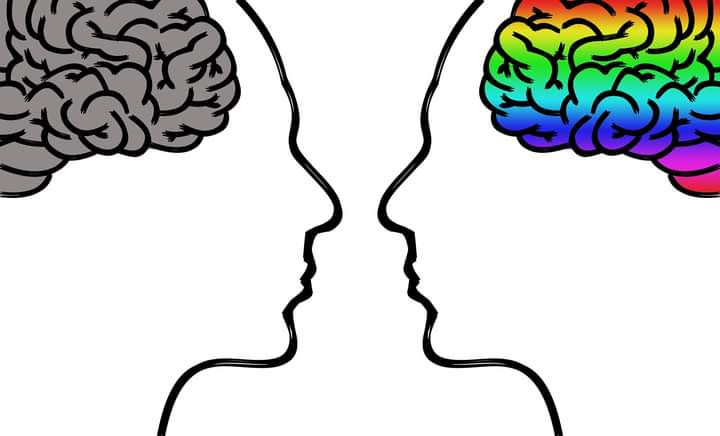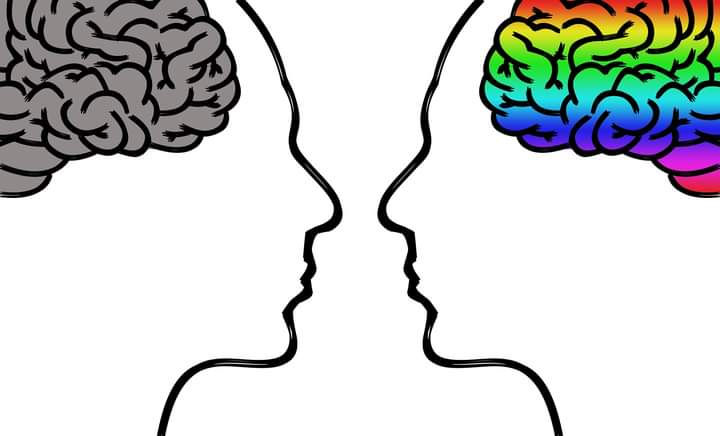Worry x Excessive Worry
- Debora Wiseman
- 29 de nov. de 2022
- 4 min de leitura

Worry is something positive, to a certain extent, as it will make you improve your performance in carrying out your activities. When we are worried about something or someone, it means that we care about that activity or that person, that we want to have a good performance.
On the other hand, excessive and constant worry is something paralyzing, it keeps us prisoners of our mind, because our mind is always looking for reasons to worry, in a self-sabotaging way and therefore we are unable to act effectively and assertively in our daily activities .
The levels of adrenaline in our body rise, causing an overload of stress. So we see danger everywhere. Therefore, our responses are exclusively emotional and we lose the ability to reason logically.
In this state of constant and excessive worry, we act clumsily due to the mental confusion created by the disturbed emotional state.
In addition to harmful emotional and psychological consequences, excessive worry can be considered a product of contemporary society. Our busy lives, with little time for reflection and entertainment, take a toll on our physical and mental health.
Recently, the World Health Organization (WHO) included Burnout syndrome (chronic stress) in the International Classification of Diseases due to the large number of cases. This means that, in a good part of the planet, people are stressed, tired, anxious and very worried.
The individual who worries excessively does not live in a healthy way, that is, he does not live in the present, because his mind is always wanting to unravel the future and, at the same time, he is stagnant in the past. The person becomes tense and stressed, and cannot find a way out of their worries, being unable to get rid of this harmful habit. In this way, excessive concern on a recurring basis can cause headaches, ulcers, insomnia and skin problems, to name just a few of the physical consequences. The emotional effects are even more difficult to deal with, such as paranoia, phobia, anxiety, depression, Burnout syndrome (chronic stress) and bipolar disorder, amongst other disorders.
How do I know if I'm worrying excessively?
Here are some symptoms of excessive worry:
Lack of concentration;
Irritability;
Feeling of loss of control;
Anxiety crises;
Stress;
Difficulties separating work from personal life;
Interpersonal conflicts , always being “on edge”;
Low productivity;
Demotivation;
Fear of making mistakes;
Fear of being judged, withdrawing more and more.
However, each individual can experience these issues in different ways.
It has never been so important to know how to control excessive worry
How to get rid of excessive worry?
Some valuable tips can help you: It is important that you do:
Therapy sessions;
Meditation;
Yoga;
Mindfulness;
Physical activities.
Also:
>>> Relinquish Control
Stop wanting to control every aspect of your life. Life is made of inconsistencies and surprises. Accept unusual situations and treat them as potential lessons for enrichment.
>>> Add moments of silence to your routine
We receive many stimuli day after day, constantly browsing the internet or TV. It's important, but not excessively. The problem is when we ignore our mind's desire for silence to satisfy a momentary need.
Replace those moments of stimulation with minutes of silence. There is no need to think all the time about the absence of stimuli.
Relaxations and breathing exercises are excellent for calming the mind and body, slowing down the flow of thoughts. They are very useful for relaxation and help us to see life clearly.
>>> Challenge your beliefs
"Bet all your chips" on yourself and believe in the power of destiny
Creating dialogues and situations in our minds are techniques that help when we visualize positive occasions. When we do this with only the worst case scenarios in mind, we strengthen anxiety.
Faith and positivity is the key word. We must not always expect the worst or prepare for it in advance.
>>> Enjoy the present.
Release the past, live the present, in a healthy and ecological way, without worrying about the future.
Uncertainty is a fundamental part of our existence and it is what makes it more dynamic. If there were no challenges, we would not grow and learn. Embrace the unknown to start working with it, not against it.
>>> Externalize your problems
Converse. Write. Take away the problems that so trouble your mind and heart. Describe them in detail to understand why they are so impactful for you. At the same time, look for possible solutions, listing those that are most viable and those that are not.
We cannot see all the factors involved in our problems when they are in our mind. We think and analyze too much, complicating what is easy to solve.
When you externalize your worries, you realize that they are not that complex. In fact, for almost everything there is a solution.
And for this tip, nothing better than sharing your problems with family and friends.
>>> Seek professional help
In addition to our tips, it is always important to seek professional help and a competent therapist in the process of self-development and self-knowledge, in case the worry is taking over and the control of worrying is too challenging.
Getting regular therapy is a great way to better understand your triggers and identify ways to avoid constant, excessive worrying.
IMPORTANT: If you need to take medication, do so only with proper MEDICAL ADVICE.
In addition, it is ESSENTIAL that you continue with therapy sessions even if you feel better after starting drug treatment.
These treatments make it easier to make decisions and avoid physical and emotional damage, both for you and for those around you.
So, whenever you find yourself in a situation like this, try to relax, and if you can't, seek help, because it's not your fault and you're not alone!
IMPORTANT: We are Holistic Therapists and our treatment is alternative. Even presenting satisfactory results, it is essential to emphasize that only duly qualified physicians can diagnose diseases, recommend treatments and prescribe medication.
All the best.
See you next week
Shalom!
Debora and Daniel Wiseman





Comentários